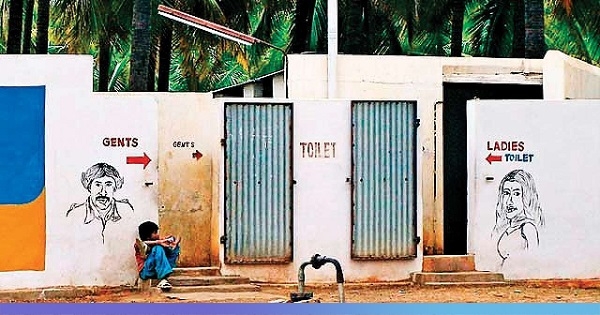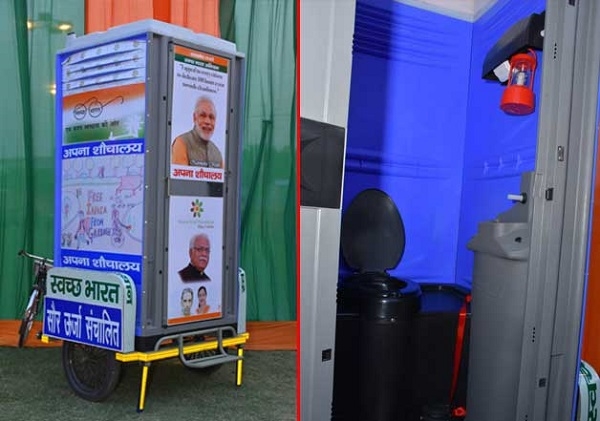How has NaMo worked towards maintaining an open defecation free India?
Total Views | 187
-Siddhi Somani
Interesting fact as it is! Do you know that a single gram of faeces contains millions of viruses, bacteria and parasitic cysts, and contributed to nearly 100,000 diarrhoeal deaths of children under five years in India. Sick children, through the repeated damage to their stomach lining and subsequent ability to absorb nutrients, therefore become susceptible to malnutrition, stunted growth and opportunistic infections such as pneumonia. Open defecation amounts to tonnes of faeces introduced daily into the environment, which regularly exposed India’s children to excrement through direct contact. The risk of spreading diarrheal and waterborne diseases is compounded by the lack of regular handwashing and microbial contamination of water in their homes and communities.
Since 2014, after the Narendra Modi led government came to the power, India, in partnership with UNICEF, has made remarkable strides in reaching the Open Defecation Free targets. 36 states and union territories, 706 districts and over 603,175 villages have been declared open defecation free as of Jan 2020. Even with these impressive figures, it is vital that social and behavioural change communication approaches keep pace with the service delivery to ensure that families receiving toilets continue to use them regularly. The practice is deeply ingrained from early childhood and a taboo topic for discussion, which makes behaviour change a challenge. (Data Source- SBM Dashboard)

Changing behaviour, beliefs and myths around toilets is key to ensuring sustained open defecation free status in all communities across India. India has made rapid progress in ending open defecation across the Country which is having a huge impact on improving water, sanitation and hygiene. The Swacch Bharat Mission, one of the 'Modi' Successes, has changed the behaviour of hundreds of millions of people with respect to toilet access and usage. 500 million people have stopped defecating in the open since 2014, down from 550 million to less than 50 million today. A tremendous achievement, only possible because of the Clean India Campaign.
Whether in the cities or the countryside, open defecation has historically been most prevalent among the poorest citizens because many of them are unable to afford toilet construction or are living in rented homes without toilets. Even if the economically disadvantaged could afford to install a toilet, most people view this as a governmental responsibility with little benefit to their social standing, status, or well-being. Hence, India, with help from partners like UNICEF demonstrated an unprecedented commitment to making India ‘Open Defecation Free’ by 2019. To achieve this target and support multiple SDGs, the Government launched the Swachh Bharat Mission in 2014. While the priority of the Campaign was to ensure all households construct and use a toilet, it is now also focused on ensuring the availability of clean water and preventing faecal waste from flowing into fields and contaminating crops.

UNICEF, as a critical Government partner, provides technical support in over 192 districts across 16 states in developing district-wide ODF plans and implementation models. It also supports monitoring and evaluation, including conducting third-party verification and spot checks to help authenticate the real-time monitoring and information dashboard hosted by the Ministry Jal Shakti. UNICEF promotes joint programming between the Clean India Campaign and nutrition missions, by articulating sanitation’s impact on nutrition and vice-a-versa. It stimulates demand for adequate water, sanitation and hygiene facilities and promotes life-saving practices like handwashing with soap.
With this, the country in Modi's rule ahead needs to focus on efforts harnessing social movements to create new social norms for ending open defecation while challenging deeply entrenched practices of caste, gender inequity and social exclusion. Advocacy meanwhile shall promote the installation of mass handwashing stations in schools and preschools to allow for daily handwashing exercises to teach good hygiene habits. We are close, and not yet so far!
Bharati Web






